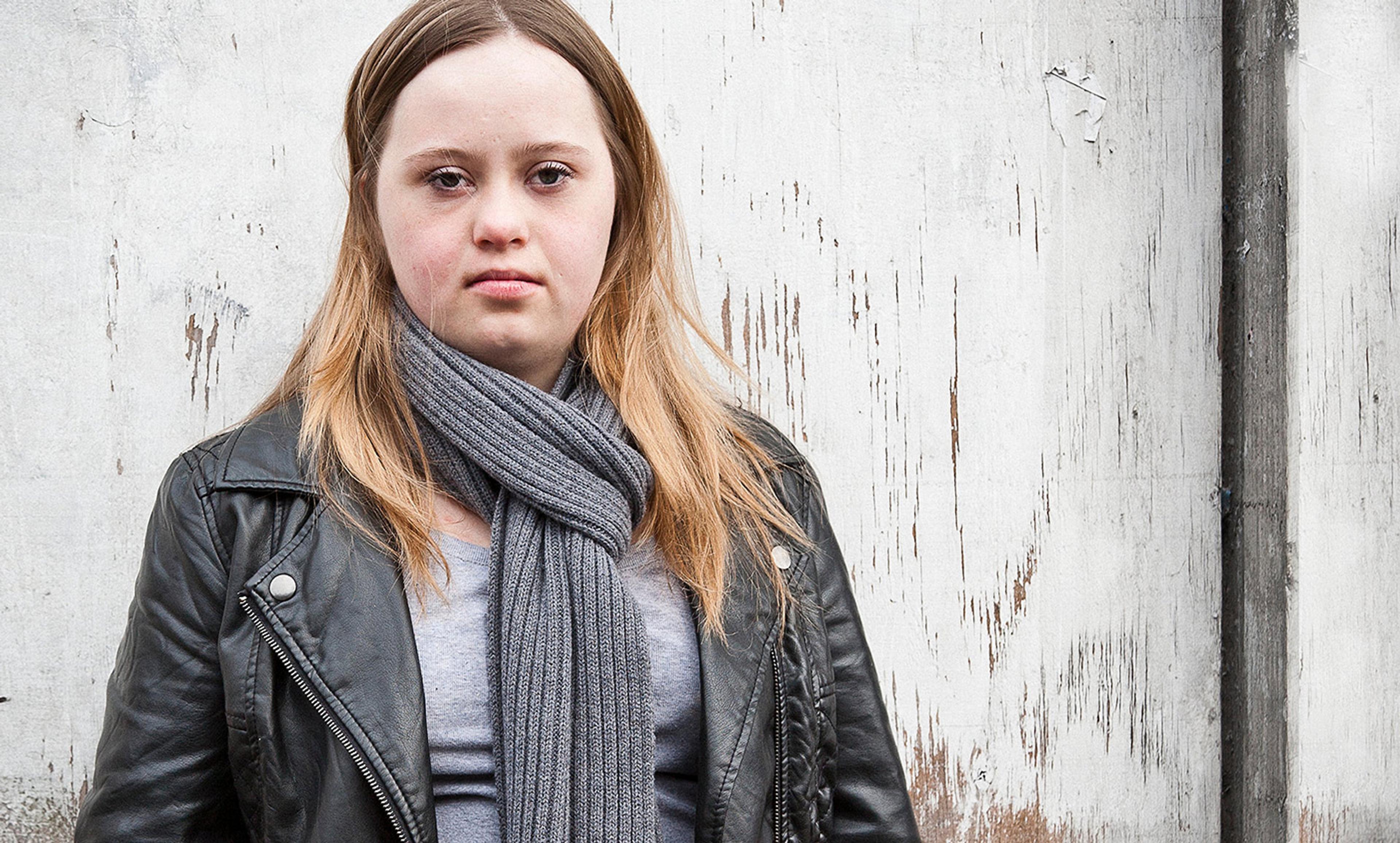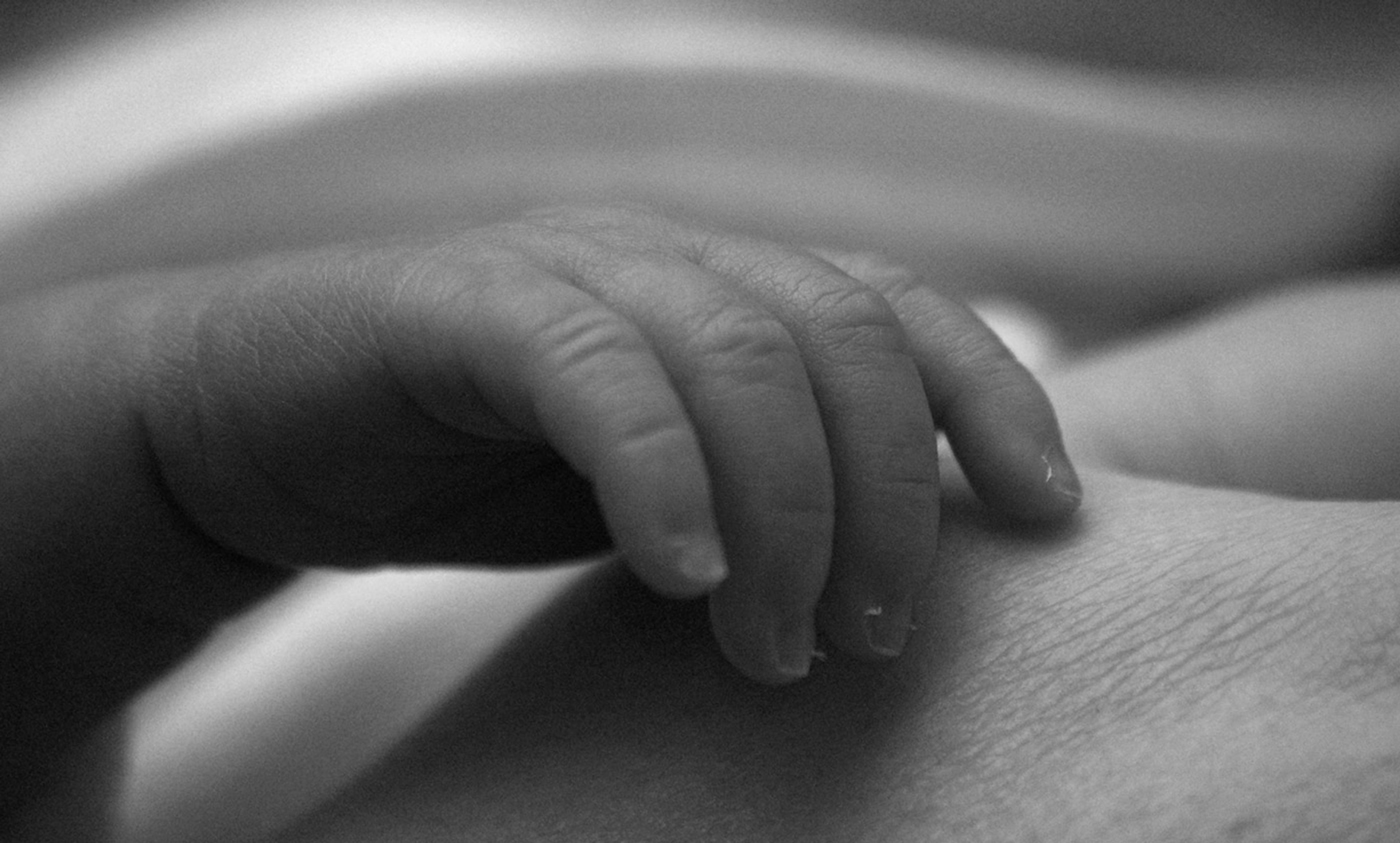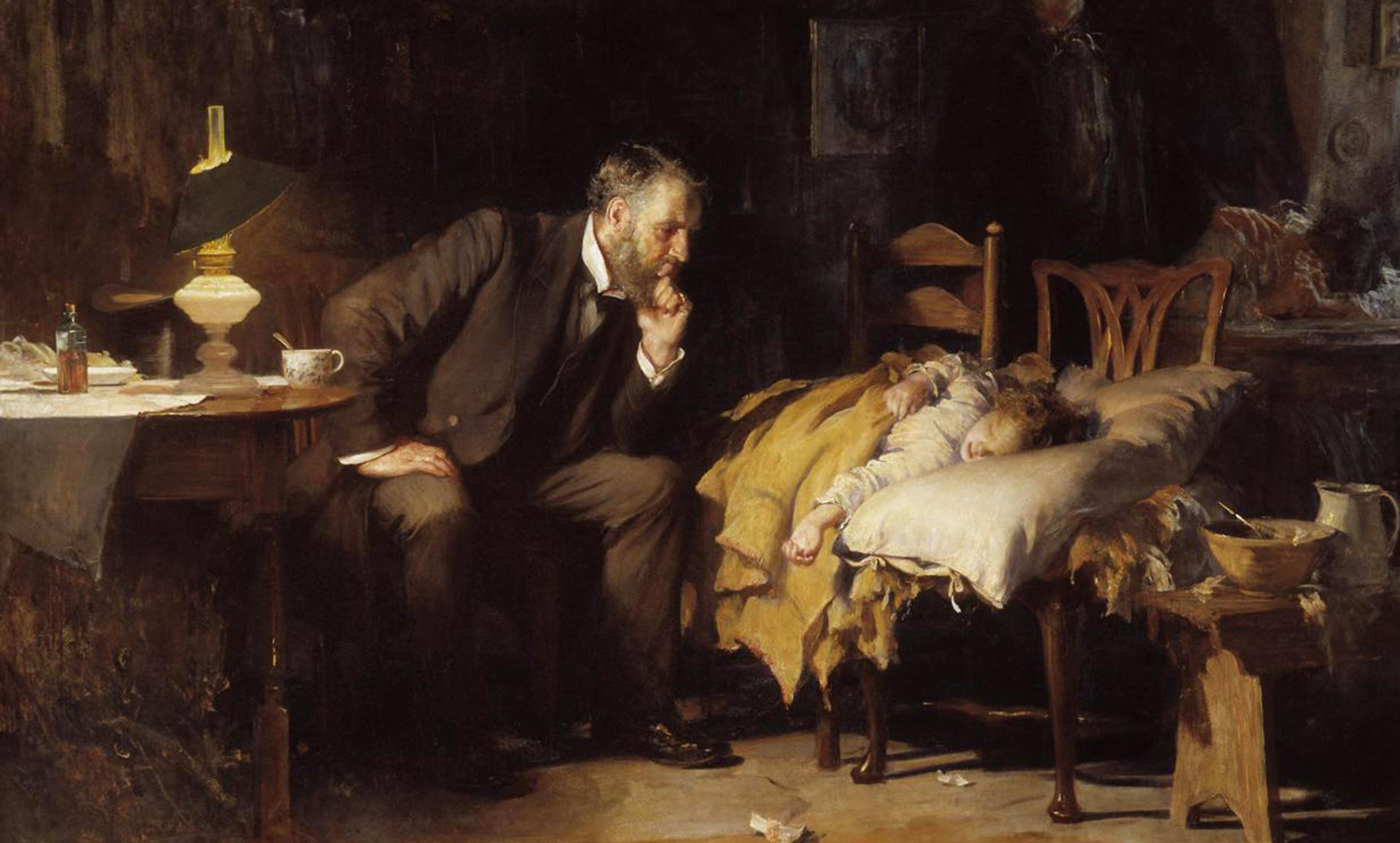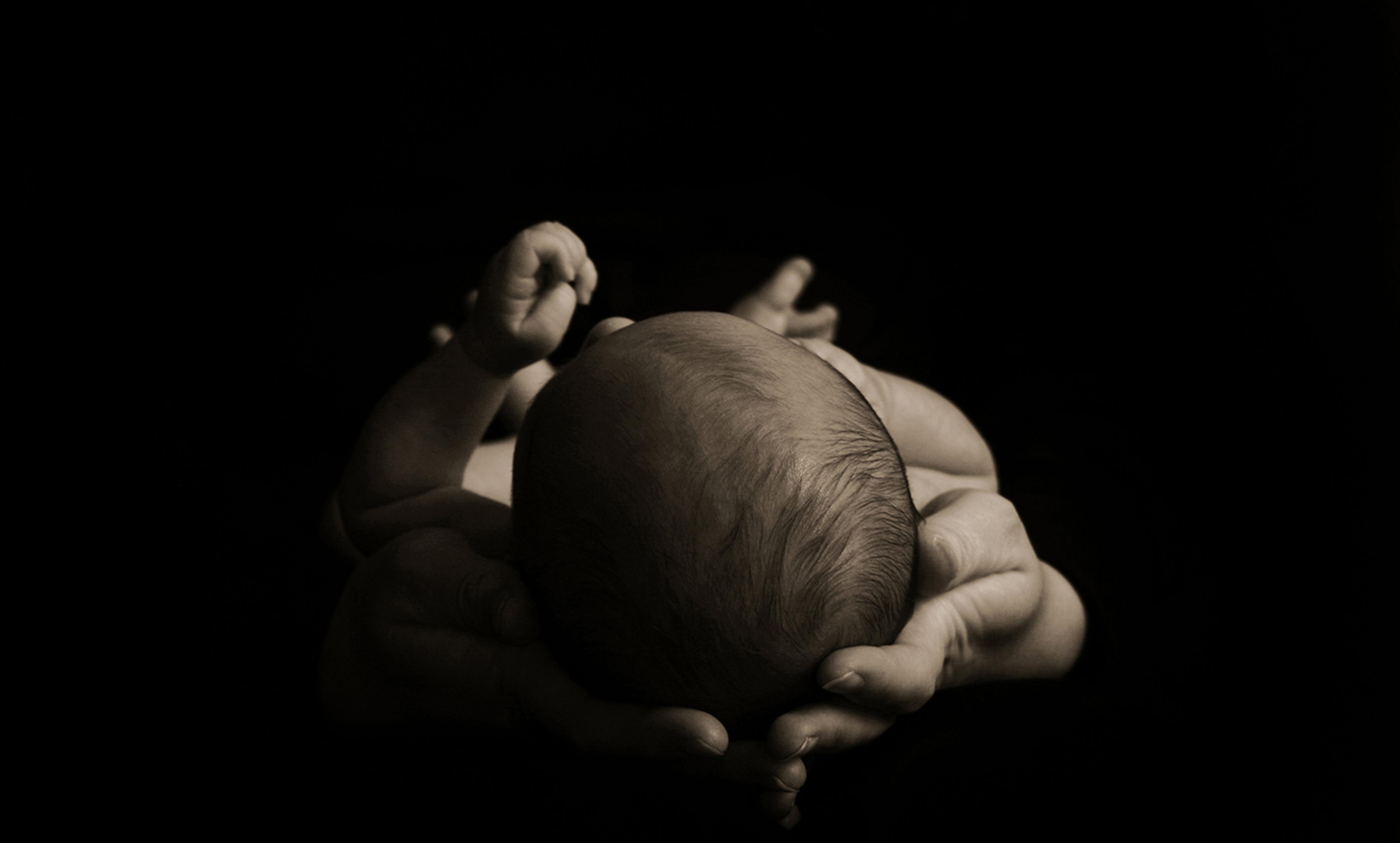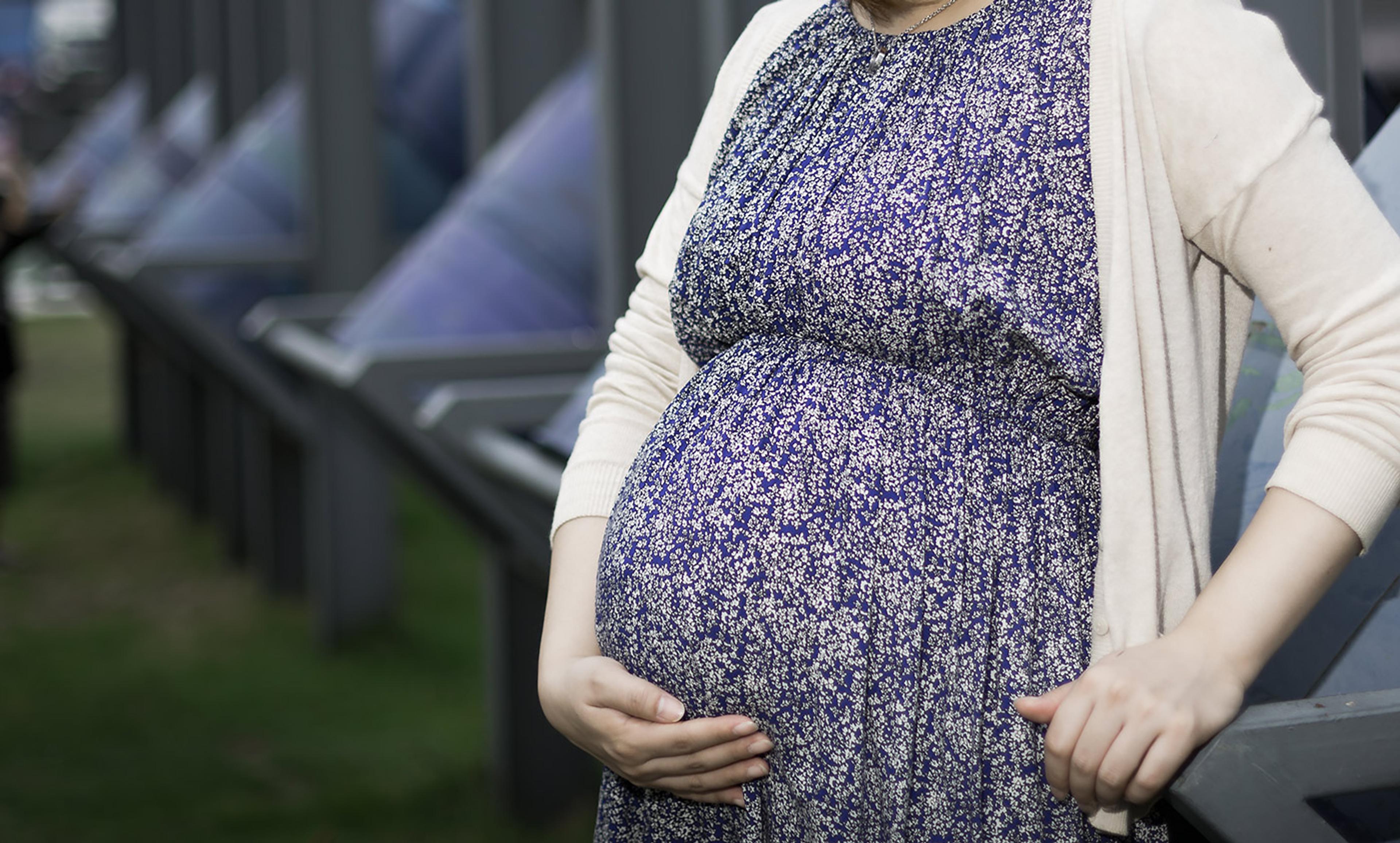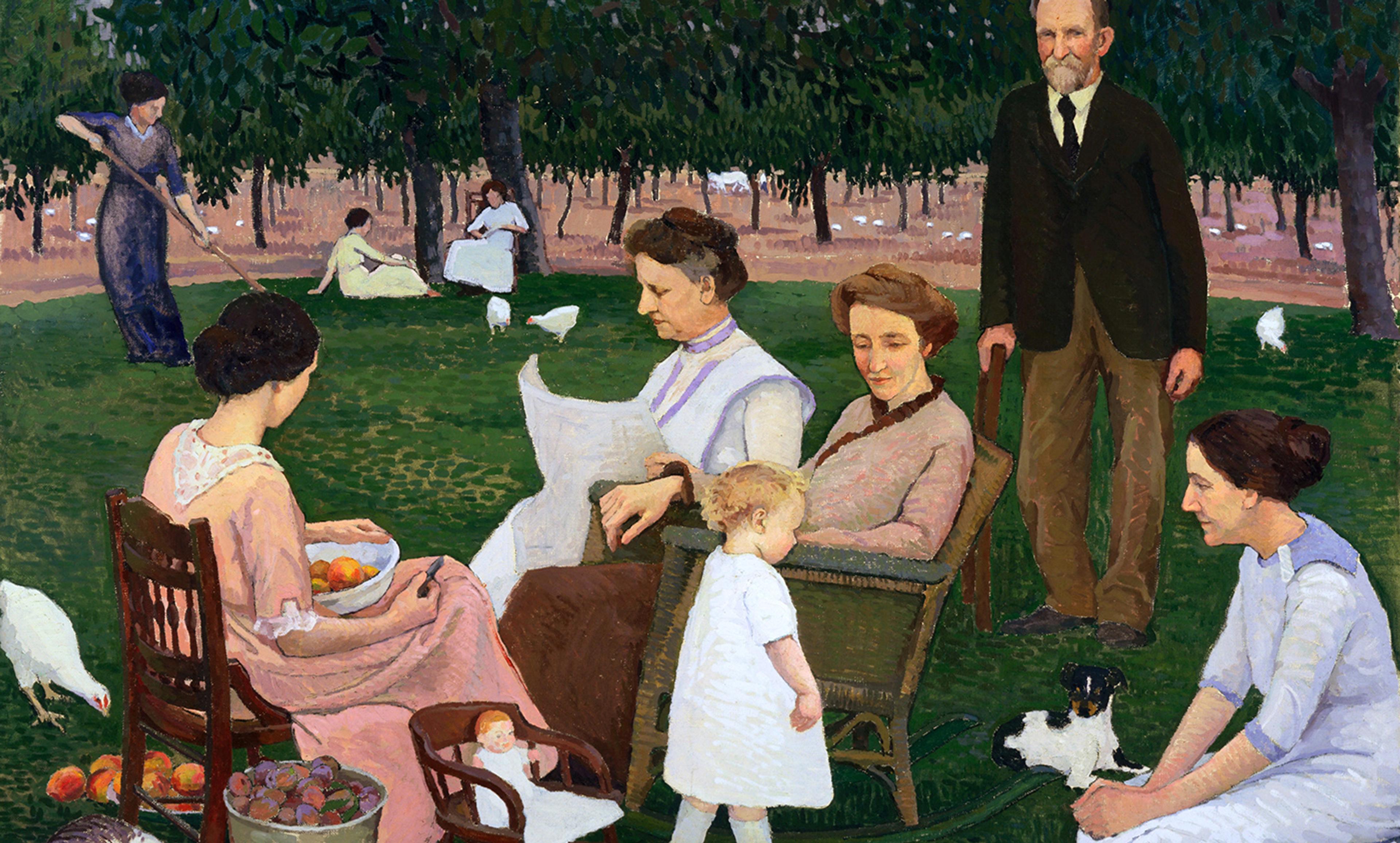Portrait of a teenage girl. Part of ‘Shifting Perspectives’, an exhibition centred around positive imagery of individuals with Down syndrome. Photo by Fiona Yaron-Field/Wellcome Images
My son Aaron, aged nine, has Down syndrome. If you look at photos of our family, his disability might not be readily apparent. He wears glasses, and he likes to pull his baseball cap down low over his forehead, which makes the characteristic almond shape of his eyes difficult to see. At first glance, Aaron might look like any other nine-year-old – and that seems fitting because much of his life revolves around the activities of a typical boy his age: sports, playing with pets, going to school, watching cartoons.
As a parent of a child with Down syndrome, I was alarmed when I first heard about the high rates of abortion of foetuses prenatally diagnosed with the condition in the United States. These rates range from 67 per cent to 90 per cent and above. But after a bit of reflection, this reaction of alarm might not make a lot of sense. Though my wife and I chose to bring Aaron into our family after his prenatal diagnosis, some might think that the opposite choice made by others would not affect Aaron or our family. Why should someone like me care about whether others choose to abort a foetus with Down syndrome? Isn’t it just a personal decision?
I haven’t been able to shake my sense of alarm, but now I understand it better. My worry about the choices of other prospective parents is a protective impulse. What are the motivations behind the choice to abort, I wonder. There is reason to believe that these choices are often influenced by bias against people with Down syndrome. And if people are biased against those with Down syndrome, then such attitudes directly threaten the wellbeing of my son.
Why believe that bias is a motivating factor? For one thing, other possible explanations don’t add up. For instance, having Down syndrome doesn’t negatively affect one’s sense of wellbeing, a position supported by research. Moreover, I think that most people know about this relationship between Down syndrome and wellbeing. After all, the happy child with Down syndrome is a common cultural stereotype. So people likely do not choose abortion over concerns about the quality of life of such children.
Similarly, concerns about negative effects on families of parenting a child with Down syndrome are unfounded. Research shows that such families tend to be as stable and well functioning as families that include only non-disabled children. Again, many people know such families, and know that they flourish. So I doubt that widespread abortion of foetuses with Down syndrome is motivated by worries about family functioning.
Some have pointed out that in countries such as the US, where there isn’t universal access to healthcare, the prospect of bringing a child with a disability into the world would be daunting. This point, of course, makes a lot of sense. In fact, without good health insurance, it would be daunting to bring any child into the world. However, even in the US many people do have good health insurance. So this concern would not seem to apply to the large group of prospective parents who have good access to healthcare.
If these motivations do not seem to be at play, some other powerful cause must be responsible for the high rates of selective termination for Down syndrome. Bias is a prime candidate. Because Down syndrome is a cognitive disability, people with the condition tend not to manage all activities of daily living on their own. Western cultures value independence, and consequently people with high levels of dependency are often stigmatised. According to ideology that is influential in many countries, people should not expect government handouts, and social programmes are a drain on taxpayers. Such beliefs can easily translate into loathing for people who are dependent. This bias against those who are dependent, if it is commonly held, would also tend to influence reproductive decisions. Few are more dependent than children with disabilities.
There is also evidence that bias against people with cognitive disabilities is widespread and tends to be perceived as acceptable. The Special Olympics organisation has led an initiative asking people to refrain from using the slurs ‘retarded’ and ‘retard’ in their speech patterns. These offensive terms are often used in Hollywood movies and other profitable products of popular culture. An example: a character in the film Ted (2012), starring Mark Wahlberg, says ‘fucking retarded’ in a joke. The ‘joke’ appears to have incurred no objection from anyone: the film went on to gross $550 million worldwide, and the studio made a sequel.
Bias can be pernicious in many areas of life. To flourish, Aaron requires good special education, and healthcare. When he grows up, I would like options for independent housing to be available to him. He also needs friends. Discriminatory attitudes can threaten all of these things. To counter the prevalence of bias, more people should choose to have children with Down syndrome. I wish and hope that our communities become more welcoming of people like Aaron with differences and dependencies. To create more welcoming communities, we would also have to be more welcoming of children with Down syndrome into our own families.
Choosing Down Syndrome: Ethics and New Prenatal Testing Technologies (2018) by Chris Kaposy is out now via MIT Press.
